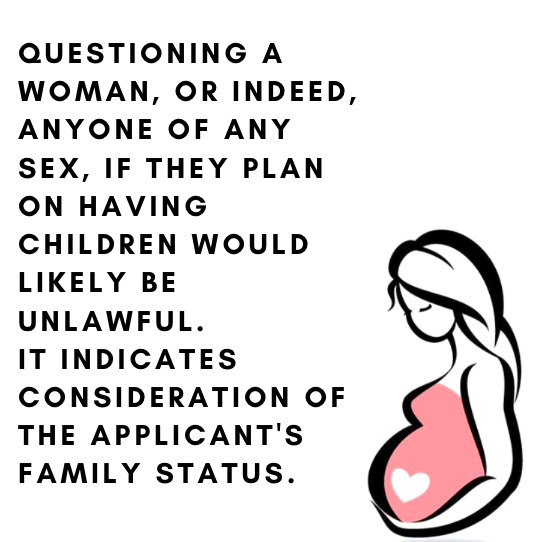Amicus Curiae: Jacinda Ardern and the Children Question
BY HANNAH YANG
Within 24 hours of Jacinda Ardern’s appointment as the new leader of the Labour Party, the question has arisen as to whether it is appropriate for employers to ask women whether they intend to have children. Discussion emerged after comments were made by AM Show presenter Mark Richardson during an interview with Ms Ardern, with the former asserting that employers “need to know that type of thing”.A swift response to these comments was published by Dr Jackie Blue, the Human Rights Commissioner, in which Dr Blue pointed out that it may in fact be unlawful to ask a woman during an interview process whether they intend to have children, as it would be a breach of the Human Rights Act.The relevant sections are section 22, which deals with discrimination in employment, and section 21, which sets out the prohibited grounds of employment.
- Under s 22(1)(a), it is unlawful for an employer to refuse to employ someone who is qualified for the position in question for any of the prohibited grounds of discrimination.
- Under s 21(1)(l), family status is considered a prohibited ground of discrimination. This includes whether the person has full- or part-time responsibility for the care of children, or no responsibility for the care of children.
It is therefore unlawful for an employer to refuse to employ someone who is qualified for the position on the grounds that the applicant is or is not responsible for taking care of children. As a result, questioning a woman, or indeed anyone of any sex, during an interview for employment as to whether they intend to have children would likely be unlawful, as it indicates consideration of the applicant’s family status. It is consequentially highly inadvisable to permit Mr Richardson’s behaviour of questioning women about their intentions to have children.For completeness, the following is a complete list of the grounds on which employers cannot base their decision whether not to employ someone, provided the applicant is qualified to perform the job:
- one’s sex, including pregnancy and childbirth;
- whether one is single, married, in a civil union, in a de facto relationship, widowed, separated, or divorced;
- one’s religious beliefs or lack thereof;
- one’s skin colour;
- one’s race;
- one’s ethnic or national origins and citizenship;
- any disability, including physical or intellectual impairment, physical or mental illness, loss of psychological or physiological function, reliance on a guide dog or wheelchair, and the carrying of any organisms able to cause illness;
- one’s age, provided one is above 16 years;
- one’s political opinion or lack thereof;
- whether one is unemployed or receiving a benefit;
- whether one has or has not responsibility for taking care of children;
- whether one is married to, in a relationship with, or related to a particular person; and
- one’s sexual orientation, “which means a heterosexual, homosexual, lesbian or bisexual orientation”.
Where you believe a prospective employer has been in breach of any of those parts, you may lay a complaint with the Human Rights Commission. Alternatively, where the discrimination comes from your existing employer, you may raise a personal grievance with the employer under s 114 of the Employment Relations Act.–The views expressed in the posts and comments of this blog do not necessarily reflect those of the Equal Justice Project. They should be understood as the personal opinions of the author. No information on this blog will be understood as official. The Equal Justice Project makes no representations as to the accuracy or completeness of any information on this site or found by following any link on this site. The Equal Justice Project will not be liable for any errors or omissions in this information nor for the availability of this information.

